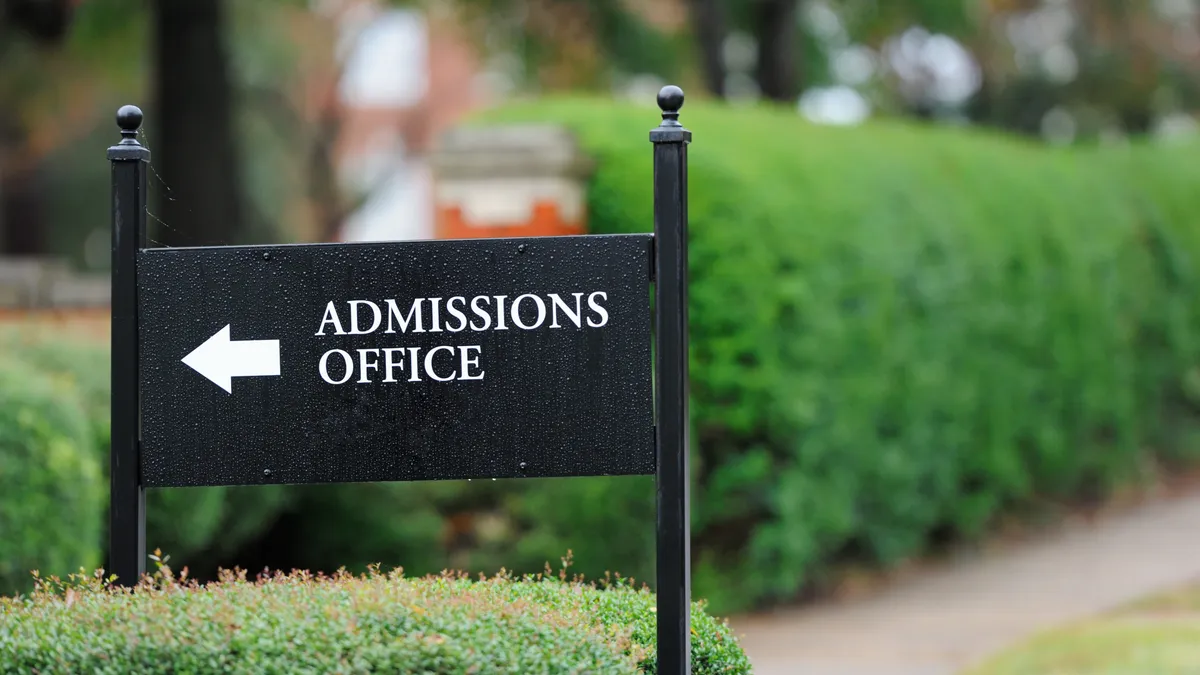Dive Brief:
- The National Association for College Admission Counseling, or NACAC, will create a new advisory group focused on folding student perspectives into the creation of admissions policies, it announced Thursday.
- This group — the Ad Hoc Committee on Centering Students in the Development of Equitable Admission Practices — will draft a framework colleges can use to bring students into this type of decision making.
- It was created with a $50,000 grant from the Kresge Foundation, a prominent philanthropic organization.
Dive Insight:
In January, NACAC released recommendations developed with the National Association of Student Financial Aid Administrators on eroding equity-related roadblocks in admissions.
That report spanned multiple areas of enrollment and financial aid. One suggestion was the idea that colleges should involve students in their admissions work, said David Hawkins, NACAC’s chief education and policy officer.
The new ad hoc committee puts that recommendation into practice, Hawkins said. It will be composed of 15 admissions practitioners who are NACAC members, as well as 15 to 20 students, he said.
NACAC will work with the American Youth Policy Forum, a professional development nonprofit, to select the students, Hawkins said.
All of the committee members will meet in January, with the goal of having the student-centered admissions roadmap ready to release to colleges in March, he said.
Colleges may have tested certain parts of their admissions work with students, such as showing them front-facing marketing materials before they’re published, Hawkins said. But students generally have not gotten to weigh in on “back-end” decisions, like which high schools college admissions professionals will visit or how heavily they should invest in social media.
Hawkins said in his more than two decades with NACAC, he’s never seen such an explicitly student-focused initiative.
But funders are pushing in that direction.
“The idea that the association of admissions counseling is serious enough about getting students at a high level involved in our equity conversations is very much in line with what foundations are looking for overall,” Hawkins said.
NACAC previously started leading a study on the effects of test-optional admissions policies, which give students flexibility about whether they want to submit SAT or ACT scores. A $1.4 million grant from the Bill & Melinda Gates Foundation is funding that study.












